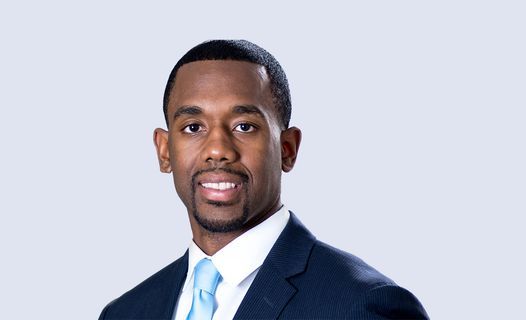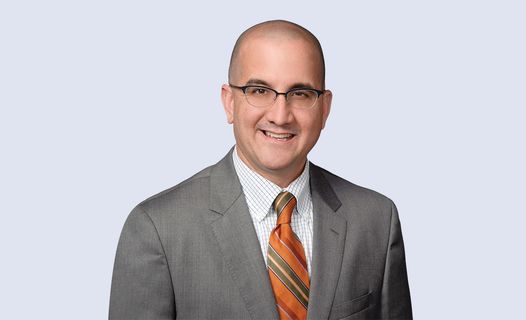It’s hard to keep up with all the recent changes to labor and employment law. While the law always seems to evolve at a rapid pace, there have been an unprecedented number of changes for the past few years—and this past month was no exception.
In fact, there were so many significant developments taking place during the past month that we were once again forced to expand our monthly summary well beyond the typical “Top 10” list. In order to make sure that you stay on top of the latest changes, here is a quick review of the Top 17 stories from last month that all employers need to know about:
- Back To Square One: Court Ruling Upends COVID-19 Leave Rules – In a surprising and significant ruling on August 3, a New York federal judge tossed out several key Department of Labor rules regulating the Families First Coronavirus Response Act (FFCRA), meaning that more workers will be able to take paid leave under the new law. The ruling also creates uncertainty for employers trying to comply with administrative aspects of the leave act requirements, and brings us back to the confusing early days of the new law before the DOL issued clarifying regulations. The scope of the ruling is unclear at present, as the judge did not specifically indicate if it applies nationally or just in New York. However, even if limited in scope, the same reasoning could be followed by other courts considering similar challenges in other parts of the country. As a result of the decision, employers covered by this ruling must make several critical decisions (read more here).
- Executive Action Takes Aim At Reducing Payroll Taxes And Extending Enhanced Unemployment Payments As COVID-19 Crisis Continues – While Congress continues to work on a legislative deal, President Trump signed Executive Memoranda and Executive Orders that are designed to provide additional stimulus to address the ongoing economic ramifications of the COVID-19 crisis. This article focuses on two employment-related directives from the August 8 actions that directly impact employers: (1) deferral of payroll taxes; and (2) the extension of enhanced unemployment insurance benefits to dislocated workers. What do employers need to know about these developments and what needs to be done as a result? (read more here)
- EEOC Issues New Workplace Guidance On Opioid Use And Reasonable Accommodation Considerations – The Equal Employment Opportunity Commission recently released two new technical assistance documents that address issues concerning the employment provisions of the Americans with Disabilities Act in relation to the use of opioids by employees. The August 5 guidance documents are presented in a question and answer format and, although not legally binding on the public, provide valuable insight into how the EEOC expects the reasonable accommodation process to operate as it relates to opioid-related disabilities. What do employers need to know about each document? (read more here)
- How To Balance School Re-Openings And COVID-19 Workplace Leave: FAQs For Employers – As the summer drew to a close, schools announced their re-opening plans, which vary widely across states and localities. Some schools plan to remain open several days a week and direct students to attend remotely the other days. Others will split classes into morning and afternoon sessions, allowing students attending in the morning to participate remotely at home for the rest of day and vice versa. Still others will require physical attendance at all times, while some will choose to operate entirely under a remote learning model. In light of these different reopening plans, employers need to understand how the Families First Coronavirus Response Act(FFCRA) affects the leave rights of employees for each of these different types of school schedules. The below serves as a list of answers to frequently asked questions related to the issues you could face as schools begin to reopen (read more here).
- Hurricane Laura Causes Havoc In Gulf Coast – When Hurricane Laura made landfall on August 27, it brought along with it many employment-related concerns facing employers in the wake of hurricane-related disasters, including military leave, family and medical leave, unemployment compensation, workplace safety issues, and more. Fisher Phillips updated our Comprehensive FAQs For Employers On Hurricanes And Other Workplace Disasters to assist employers manage through this difficult time (read more here).
- New Law Would Grant Supplemental Paid Sick Leave to California Workers Impacted by COVID-19 – The California Legislature passed legislation on August 31 that would provide up to 80 hours of supplemental paid sick leave to millions of California workers for reasons related to COVID-19. Mirror Senate and Assembly bills, SB 822and AB 1867, achieve this goal, in part, by codifying the supplemental paid sick leave previously provided to “food sector” employees earlier this year via Executive Order N-51-20. In addition, the bills would expand this supplemental paid sick leave to all employees working for certain private companies and all health care providers and emergency response workers not already provided sick leave through the Families First Coronavirus Response Act (FFCRA). It is unclear at this point which bill the Legislature will pass, however, the effect of passing either SB 822 or AB 1867 will be the same for California employers. The Bill is now awaiting Governor Newsom’s signature (read more here).
- Employers Face Increase In COVID-19 Wrongful Death Lawsuits – As COVID-19 cases and deaths continue to rise, so too does the number of lawsuitsfiled against employers. Recently, an increasing number of families of employees who died from COVID-19 have asserted wrongful death actions against employers for failing to keep their family members safe while at work. What can employers learn from these lawsuits to not only keep their workers safe but avoid being on the receiving end of such a claim? (read more here)
- NLRB’s Latest Guidance Supports Employer Decisions Amidst Pandemic – Addressing the issue for the first time since the pandemic, the National Labor Relations Board recently released a series of advice memoranda instructing its Regional offices to dismiss various COVID-19 related charges against employers. The agency dismissed all of the underlying charges, further demonstrating its recent tendency to extend a degree of latitude to employers confronting virus-related challenges. Within these five August 13 memoranda, the Board concluded a variety of issues employers will want to familiarize themselves with (read more here).
- California Judge Hands Stinging Loss To Gig Economy Companies - 5 Takeaways From Ruling Ordering Ride-Sharing Drivers To Be Classified As Employees – A California state court judge just handed a potentially groundbreaking loss to gig economy companies across the state by granting an injunction forcing the two biggest ride-sharing drivers in the nation to classify their drivers as employees. Here are the five takeaways you need to know about the critical ruling (read more here), and here’s an update about the appeal that is already in progress (read more here).
- Labor Department Issues Guidance On Tracking Employees’ Teleworking Hours – The U.S. Department of Labor just released a Field Assistance Bulletin(FAB) to provide employers with guidance regarding their wage and hour obligations to track the hours of employees working remotely or teleworking. Importantly, while the August 24 FAB directly speaks to employers’ Fair Labor Standards Act (FLSA) requirements under remote work arrangements that have arisen amid COVID-19, it also applies to all other telework or remote work arrangements. This guidance may be especially useful to employers who are new to the remote work world (read more here).
- Nevada Enacts COVID-19 Liability Protection For Businesses But Imposes Additional Mitigation Requirements For Public Accommodation Facilities – At the conclusion of its Special Legislative Session, the Nevada Legislature passed a law granting legal immunity from COVID-19-related lawsuits to most businesses, nonprofits, and government agencies so long as they adhere to requirements promulgated by local, state and federal agencies, and refrain from acting in a grossly negligent manner. Senate Bill 4 was signed into law by Governor Steven Sisolak on August 11 and will be effective immediately upon promulgation of the required regulations. In addition to the new liability protections, however, SB 4 directs the Director of the Department of Health and Human Services to adopt regulations requiring public accommodation facilities to limit the transmission of COVID-19. What do Nevada businesses need to know about this new law? (read more here)
- Georgia Expands Lactation Break Law – Georgia’s recent passage of a new lactation break law earlier this month has taken many employers by surprise – or may even be news to you. Over the past weeks, news headlines have been saturated with coverage on an array of pressing national matters. In the midst of an ongoing COVID-19 pandemic, civil unrest, a hotly contested presidential election year, and an already catastrophic hurricane season, many employers have shifted focus away from state and local initiatives for more pressing national concerns. As a result, you could be forgiven for not knowing about this new employer obligation. But given that the new lactation break law took effect immediately once it was passed on August 5, you need to turn your attention to understanding your new responsibilities and working on compliance measures (read more here).
- Conflict Between State And City Orders Resolved: Georgia Businesses May Opt In Or Out Of Local Mask Orders – Georgia Governor Brian Kemp issued an August 15 Executive Order— effective through at least September 15 — that allows local governments to require individuals to wear face coverings, masks, face shields, or personal protective equipment if certain conditions are met. The August 15 Executive Order protects businesses from liability from any local mask order, and gives businesses the option to choose not to permit enforcement of a local mask order against individuals on their property. Otherwise, the August 15 Executive Order is nearly identical to the prior Orders released in July that replaced the initial guidelines and requirements for businesses to reopen. What do you need to know about this order, and what should you do as you continue to reopen and operate your business? (read more here)
- Whitmer Narrows COVID-19 Leave Protections For Michigan Employees – Governor Gretchen Whitmer just issued an executive order that limits the availability of job-protected leave moving forward only to those employees who pose a “particular risk of infecting others with COVID-19.” She did this by narrowing the definition of which COVID-19 symptoms – whether standing alone or in combination with others – will trigger COVID-19 leave protections under Michigan law. At the same time, her August 27 executive order is not retroactive in nature and is still more protective than CDC guidelineswith regard to when an employee may return to work. What do Michigan employers need to know about Executive Order 2020-172 and what they can and cannot do to return employees to work? (read more here)
- DOL’s Fluctuating Workweek Opinion Letter Leaves Us With Unanswered Questions – The U.S. Department of Labor (USDOL) just released a Wage and Hour Opinion Letter on August 31 addressing the fluctuating workweek, reiterating its position that an employee’s work hours do not need to fluctuate above and below 40 hours for an employer to rely upon the fluctuating workweek method of calculating overtime. However, there remain some unanswered questions that should cause employers to tread cautiously when implementing this system (read more here).
- Delivery Drivers Do Not Need to Be Reimbursed at the IRS Mileage Rate, per DOL Opinion – The U.S. Department of Labor, Wage and Hour Division (DOL) issued an Opinion Letteron August 31 concluding that, under the Fair Labor Standards Act (FLSA) and its implementing regulations, employers are permitted to reimburse employees who use their personal vehicle for work at a “reasonable approximation of actual expenses incurred.” This means that employers do not need to reimburse employees at the IRS mileage rate to meet their obligations under federal wage and hour laws. Given the surge of deliveries of all types of goods in 2020 and the abundance of litigation alleging under-reimbursement of driving expenses, this significant Opinion Letter provides guidance for companies reimbursing their employees for the use of personal vehicles (read more here).
- Pennsylvania Federal Court Becomes Latest To Exclude Out-Of-State Plaintiffs From FLSA Collective Actions – Federal courts across the country have been split on the issue of whether a court can exercise personal jurisdiction over out-of-state plaintiffs who want to opt-in into a Fair Labor Standards Act (FLSA) collective action. The Eastern District of Pennsylvania just issued a ruling siding with those courts that have minimized the number of members in a collective action, ruling that it lacked specific jurisdiction over FLSA claims of out-of-state opt-in plaintiffs who were not harmed in Pennsylvania. The August 12 decision in Weirbach v. The Cellecular Connection, LLC, is an important one, as it provides added support to employers looking to break up a putative collective and reduce their potential legal exposure (read more here).
If you have any questions about these developments or how they may affect your business, please contact your Fisher Phillips attorney.
This Legal Alert provides an overview of specific legal developments. It is not intended to be, and should not be construed as, legal advice for any particular fact situation.











